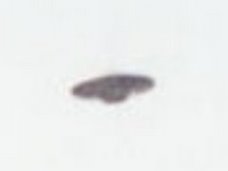
Following his defeat at the battle of Waterloo in 1815, French emperor Napoleon Bonaparte (born 1769) was sent into exile on the tiny island of St.Helena in the South Atlantic.
Napoleon spent five years on the British ruled island before he died on May 5, 1821.
During his exile Napoleon's health declined steadily. Since September 1819. Bonaparte had been under the cure of Dr. Antommarchi. The doctor had performed a postmortem, observed by five british doctors. He confirmed that the emperor had died of stomach cancer. But many did not believe the official post mortem, and, until a few years ago, rumour prevailed that he died of arsenic poisoning.
An argument in favour of the poisoning theory was that Napoleon's body had not decomposed in the coffin even in 1840 (arsenic delays decomposition of the dead body).
The problem with this thoery was that the damp condition of St.Helena could have slowed down the decomposition process.
In the early 1960s, tests were carrried out on Napoleon's hair samples.T he results shot down the arsenic theory. A second round of testing in 1994 revealed arsenic in small quantities.The poison could have come from food and water on St.Helena.
Possible suspects:
1. An agent of the Bourbons, the french royal family, who were restored to the throne in 1814, and owed this gain to Napoleon's defeat.
2. British doctors, who could have easily poisoned the emperor.
3. Count de Montholon, responsible for the house hold of the emperor. According to the emperor's will he stood to receive large sum of money.
An extensive 2007 study found no evidence of arsenic poisoning in the organs, such as hemorrhaging in the lining inside the heart, and also concluded that stomach cancer was the cause of death.
















